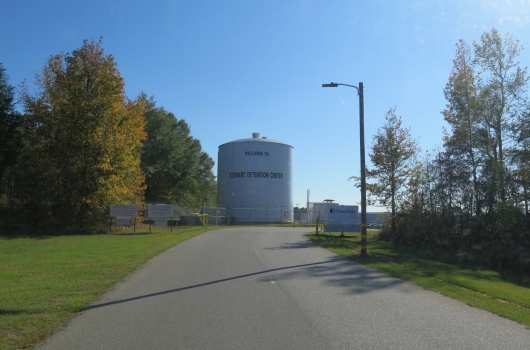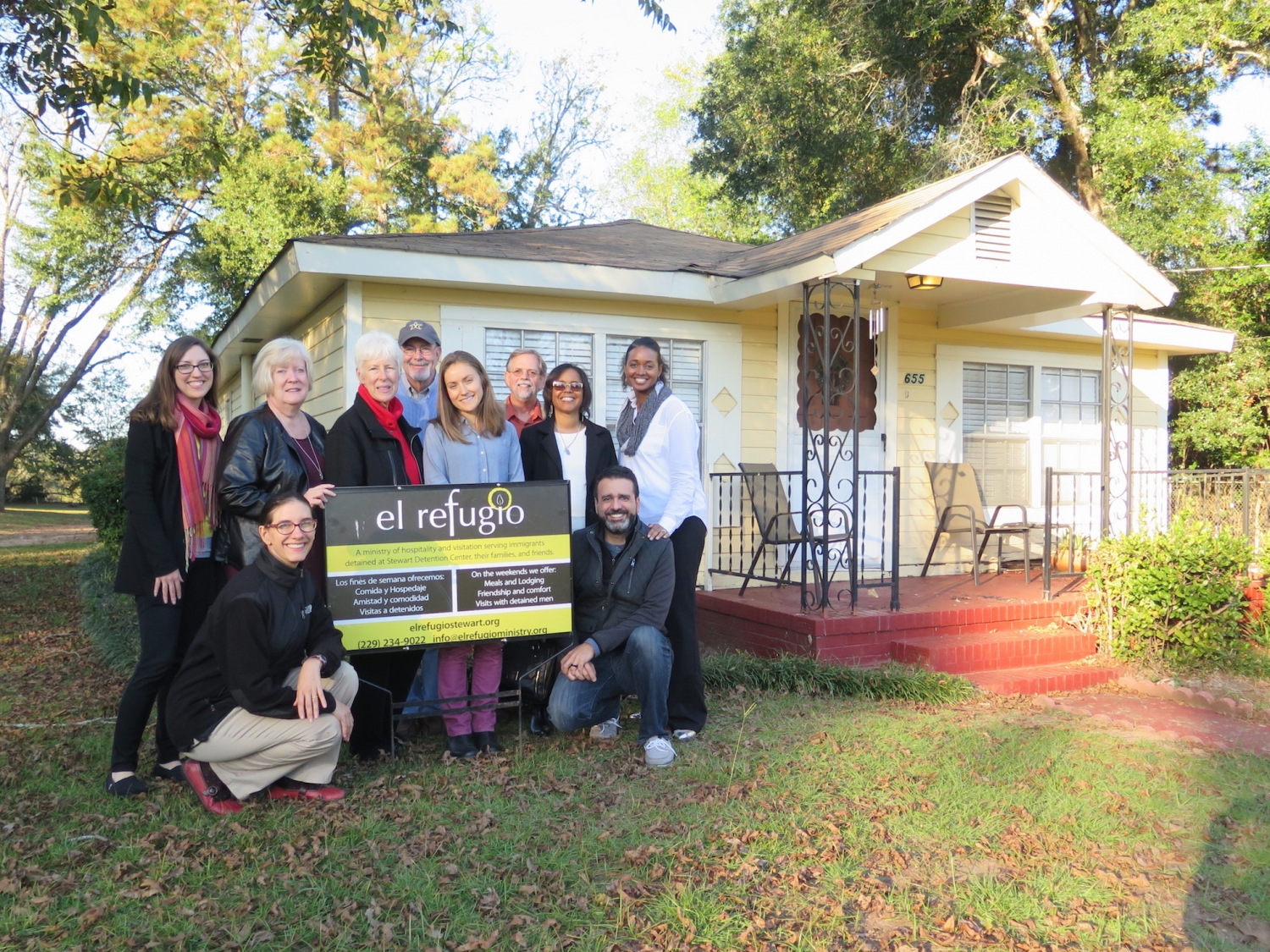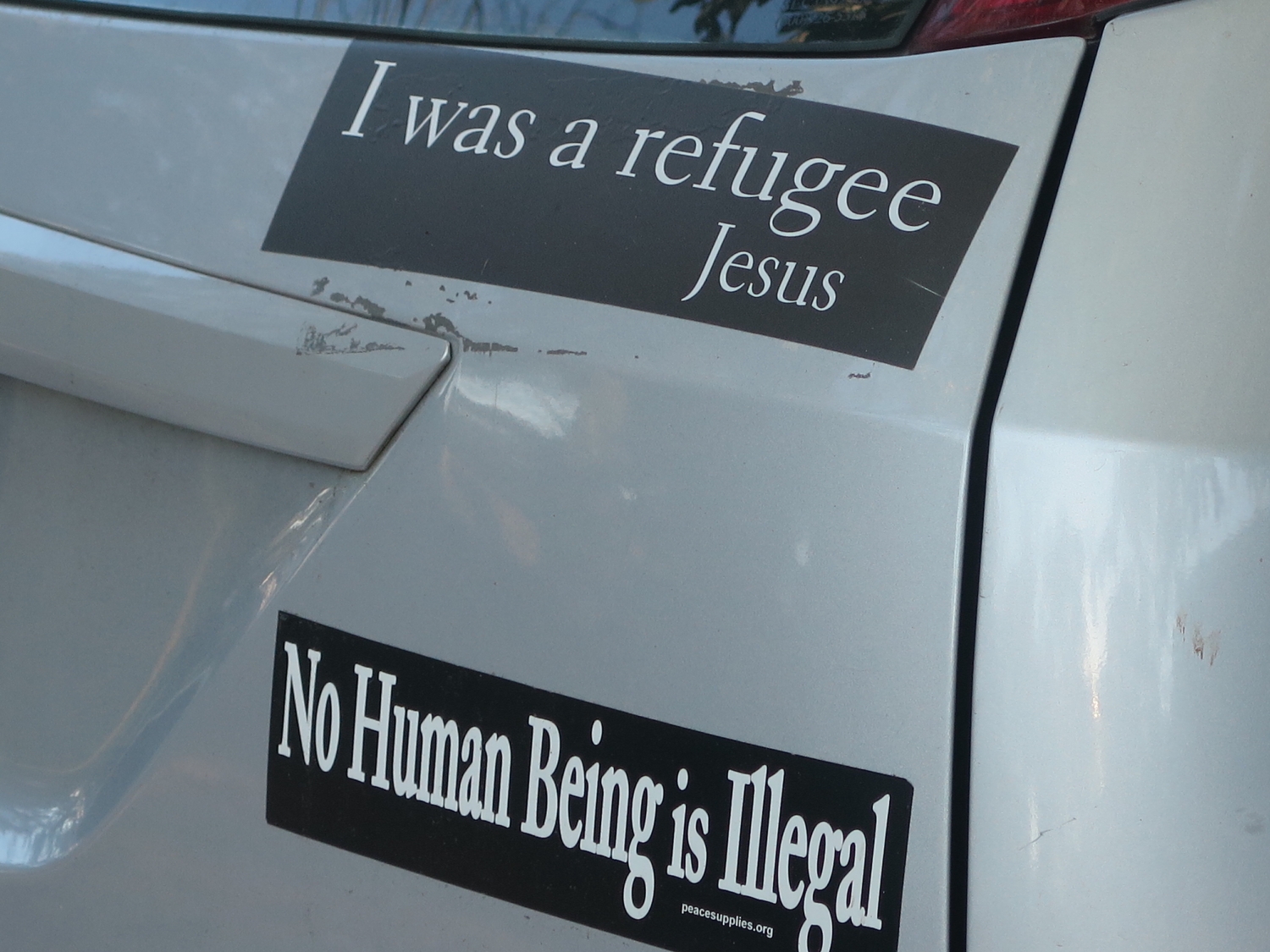Being with Jonathan

The detainee smiled at me from behind a reinforced glass window and concrete block walls and greeted me with, “Hiya, how’re you doing?” He sounded just like someone I’d met three weeks earlier at the DoC’s Pacific Southwest Region’s annual Gathering. The conversation we had was much like those I’d had at the Regional Gathering, too – What have you been up to? Where are you from? Do you have family? And so on.
That was just one of many things that made me pause and reflect this week, as NBA’s Prison and Jail Ministries Peer Group members and NBA staff visited a federal detention center. We went to be present with people we think of as our neighbors, and to hear their “stories of the heart” about immigration and detention.
My conversation partner, Jonathan (I’ve changed his name here), could have been, literally, my California neighbor.
In fact, it turns out, he once was. Jonathan had lived in Northern California for 16 years after coming to the U.S.A. from Africa to go to school. He’d graduated from a college whose name I knew, with a degree in business management; then he got an entry-level management job with an oil company. Six months ago, he was arrested and sent to the federal detention center where we were speaking together.
Jonathan and I were in the visiting area of Stewart Detention Center, in the small town of Lumpkin, Georgia. Tag-teaming with me in the conversation was NBA’s marketing director, Kasi Zieminski.
Stewart Detention Center has capacity for 1,900 detainees, and it is almost always full, we were told. The nation’s third largest federal detention center, Stewart is run by CoreCivic – a re-branded new name for what was once the Corrections Corporation of America (CCA). CoreCivic gets paid per detainee, per day, and it makes a very substantial profit from this warehousing of human beings.
A detention center for 1,900 detainees, built just over a decade ago … and it has just FIVE spaces for visitors to converse through glass with detainees at any given time. Why is that?
Everyone in our NBA group waited for hours to have just a few minutes of conversation with detainees who’d asked our host organization, El Refugio, for visitors to speak with. Here’s something else I’m pondering — What is the value of disconnection and isolation? Who benefits?
I asked Jonathan about his family back in Africa – his mother and eight surviving siblings — and whether he’d spoken with them since his detention.
“Only twice in these six months,” he said. “Phone calls are too expensive. No money.”
He had applied for asylum, but he’d been turned down.
“Couldn’t afford a lawyer,” he said. “No money.”
Now he waits to be deported, this former student and oil company worker who’d paid federal and state taxes, and who’d purchased goods and services that contributed to our economy.
Jonathan’s story is his own, and now it is part of mine as well. I have a fresh perspective on the intersections of punishment and profit that I’ve seen so often in my restorative justice ministries. I have a deeper and stronger heart for issues of immigration and detention, too.
And I have hope that I didn’t have before – hope that our denomination is starting to promote and provoke sacred conversations on the intersections of immigration, deportation, racism, and privilege in our communities and our nation. I give thanks to God for the courage and initiative of the NBA in re-focusing our hearts on the immigrant and the stranger who are, in fact, our neighbors in God’s world.
The NBA incubates new ministries, supporting social entrepreneurs of faith who are serving their communities in a variety of innovative ways and empowering these Disciples-led health and social service projects to focus on growth, impact, and sustainability. Learn more at nbacares.org/incubate or by contacting Rev. Ayanna Johnson Watkins, Director of the NBA Incubate Initiative, at awatkins@nbacares.org.

